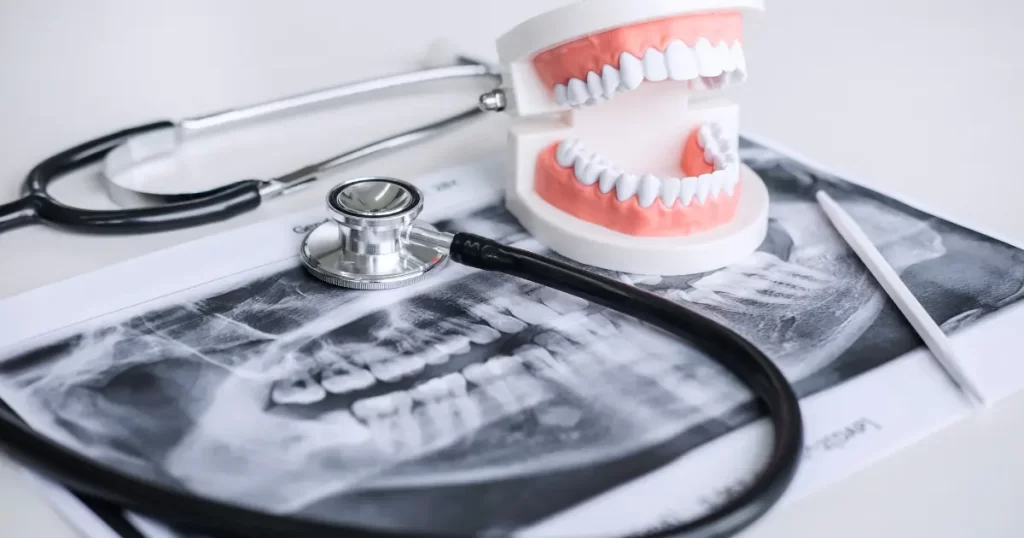The field of dentistry is one of the most developed branches of the medical world. The process, which started with the treatment initiative of decayed teeth, required dividing into branches even for the mouth over the centuries. One of the most needed specialties of today is the oral and maxillofacial surgery department. Because thanks to this field of expertise, congenital, accidental, and life-adversely affecting diseases can be treated.
This specialty deals with the entire structure that makes up the mouth and jaw. This includes sections of bone structure such as the tongue, cheek, gums, and palate. The field, which specializes in eliminating and preventing all kinds of negativity in the mouth and jaw area, is the hope of treatment for many people. Oral and maxillofacial surgery specialists strive to restore the health of patients with treatment difficulties as private individuals.
Advanced dental diseases such as impacted teeth, defects in the structure of the disease, and problems related to bones and joints can be treated. Treatment may include surgical interventions as well as the installation of apparatus or prostheses.
What Does Oral and Maxillofacial Surgery Do?
Although it is seen as a branch of dentistry, this is a specialty in itself. All disorders related to the mouth and jaw area are included in the scope of this branch. In particular, many issues from the treatment of an embedded 20-year-old tooth, which is a problem for most people, to the treatment of congenital cleft lip, fall into the specialty of this branch.
Most of the time, the first examination is done under the direction of the dentist. The device and equipment used in the examination are as important as the experience of the doctor. The specialist uses X-ray and advanced imaging technologies to pinpoint the discomfort.
A treatment process is determined according to the condition of the disease. The treatment of problems related to the jaw and tooth necessitates a process. Therefore, oral and maxillofacial surgery specialists enter into a long-lasting rapprochement with their patients. This is an important step in the correct progress of treatment.
Disorders in areas such as the jaw, teeth, and gums are treated as a result of this process. The specialist ensures that the structures that damage the structure are replaced. Implants can be used in some of these applications performed with surgical interventions. As a result, the patient gets a healthy and aesthetic jaw structure.
Which Treatments Does Oral, Dental and Maxillofacial Surgery Perform?

The chin and mouth area is extremely important for both feeding and being able to communicate. But many people have problems in the area of the jaw and mouth. Congenital effects cause damage such as jaw disorders or cleft lips in children. It becomes difficult to live when accidents and traumas cause damage to the jaw area. In the elimination of these damages, the oral and maxillofacial surgery department has a great duty.
Thanks to this specialty, the following treatments can be performed:
- Tooth extraction: It is the extraction of teeth that cannot be extracted in the normal way and requires surgical intervention. Embedded dental treatment, especially seen in 20-year-old teeth, also participates in this category.
- Implant: The use of implants that bring a new dimension to the concept of ‘denture’ depends on some conditions. For this, first of all, your jawbone must be smooth. This is the specialty of this branch.
- Tumors: Tumors are one of the important factors affecting human health. In the oral and maxillofacial surgery department, tumors seen in this area can be treated.
- Prosthesis preparation surgeries: It is ensured that the bone structure is made suitable for the prosthetic bone or tooth in the mouth area.
- Accident and trauma treatments: It is the treatment of accident and trauma effects that cause anomalies in the jaw area.
- Sinus sagging treatment: The sagging of the sinuses in the airway makes it difficult to breathe. This treatment is possible thanks to lung and maxillofacial surgery.
Does Maxillofacial Surgery Fill?

In the medical world, the word surgeon means the doctor authorized to perform operations. In this context, the field of oral and maxillofacial surgery specialists also constitutes these regions. The specialist is more interested in the effect of the tooth on the jaw than in the health of the tooth. At this stage, he is trying to make the jaw, gums, palate, or pharynx area healthy by performing surgical interventions. But there are people who need to be treated under general anesthesia. Some special individuals, children, and seriously ill patients are examples of these people. In such cases, the oral and maxillofacial surgery specialist comes into play. This is how it accompanies non-surgical treatments such as filling or root canal treatment.
Physicians who specialize in the field of the jaw are not directly interested in dental health. These specialists should be consulted to eliminate the vital damages that occur in the jaw and mouth area.






